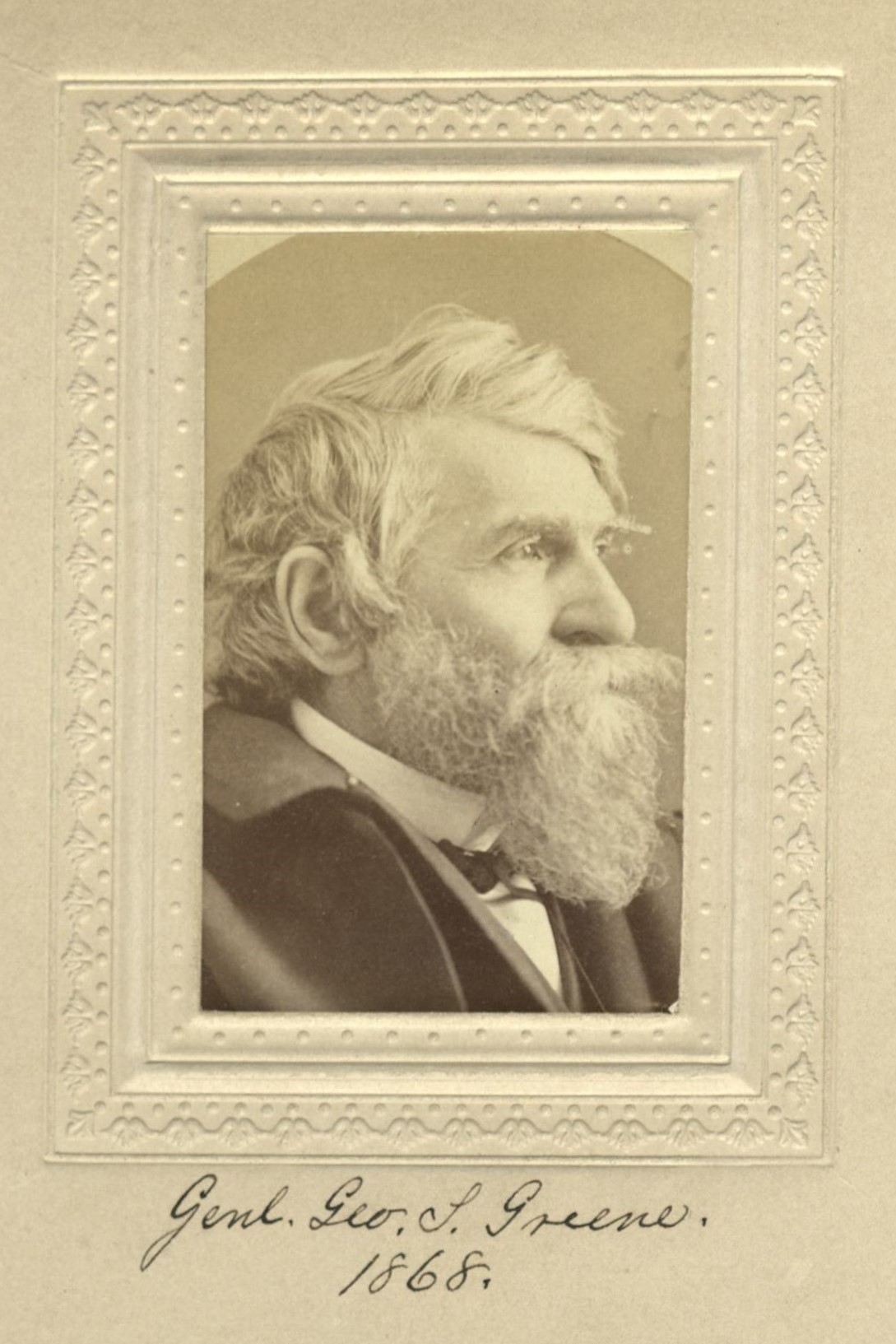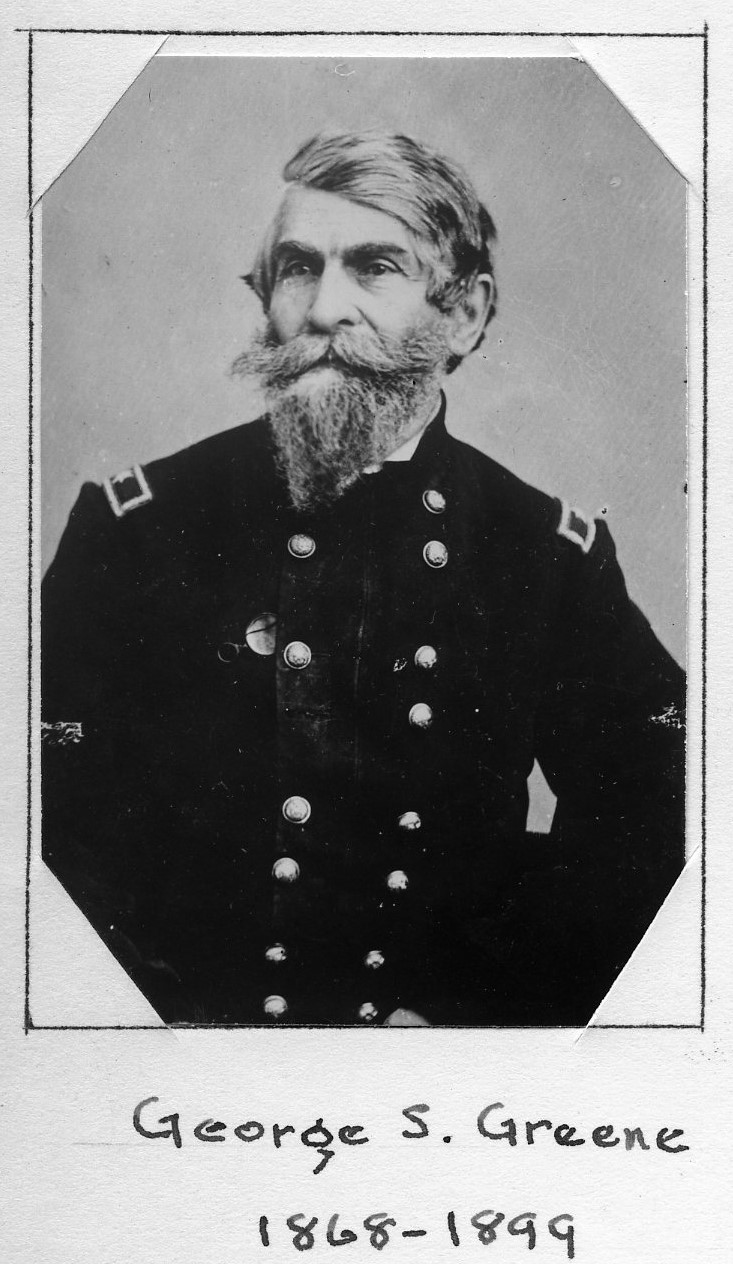Army Officer/Engineer
Centurion, 1868–1899
Born 6 May 1801 in Apponaug, Rhode Island
Died 28 January 1899 in Morristown, New Jersey
Buried Major General George Sears Greene Lot , Warwick, Rhode Island
, Warwick, Rhode Island
Proposed by Alfred W. Craven and Daniel Huntington
Elected 4 April 1868 at age sixty-six
Archivist’s Note: Father of Francis Vinton Greene and George S. Greene Jr.; brother-in-law of Alexander Hamilton Vinton and Francis Vinton; uncle of Alexander H. Vinton and Francis Laurens Vinton; grandfather of Carleton Greene, George de B. Greene, and Samuel Dana Greene
Proposer of:
Century Memorial
That brave, rugged, splendid old soldier, Major-General George S. Greene, was a picturesque figure in our membership, where he was held in universal esteem and honor at the time of his death. He was the oldest living graduate of the West Point Military Academy, and the oldest commissioned officer in the United States. He was born early enough to remember Hull’s arrival in Boston with the flag of the Guerrière, lived through the period of his country’s greatest advancement, to which he contributed in no slight degree in his civil profession, in her time of trial stood in her front line of defenders with his faithful sword, and answered the inevitable summons at the ripe old age of ninety-eight [sic], with all his faculties undimmed and with his interest in life unabated. He came of good old Revolutionary stock, and was imbued with the fiber that makes a race of soldiers.
Resigning from the army in 1836, in a time of peace, he practised his profession as engineer with great success and distinction, building railroads, designing and constructing the great reservoir in Central Park, and filling the position of chief engineer of the Croton Aqueduct Department for many years.
In 1861 he offered to his country the services for which it had given him his training, and for four years took an active and distinguished part in arduous campaigns and decisive and bloody battles. He commanded a division at Antietam, fought with distinguished gallantry at Gettysburg, contributing largely by his steadiness and inspiring conduct at critical moments on that hard fought field to the success of the Northern arms, and marched with Sherman to the sea.
He was happy in living long enough to see the qualities he so conspicuously exhibited transmitted to a line of sons [including, inter alia, George S. Greene, Jr. , and Francis Vinton Greene], who, in its military and naval service, have deserved well of their country, and bear its merited honors. His country may well be proud of him, and his countrymen will echo his dirge:
“Manfully he fought his fight,
Proved his truth by his endeavor;
Let him sleep in solemn night,
Sleep forever and forever.”
Henry E. Howland
1900 Century Association Yearbook


